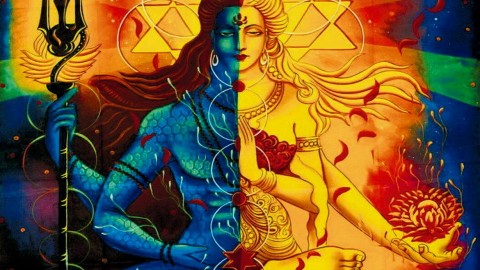False Ego – In Gita Verse 18.17 One who is not motivated by false ego, whose intelligence is not entangled, though he kills men in this world, does not kill. Nor is he bound by his actions.
In Bhagavad Gita Verse 18.17, Krishna conveys to Arjun that an individual who has transcended the false ego and whose intellect remains unentangled, does not truly kill, nor is he bound by his actions, even if he participates in acts of killing. Krishna emphasises that understanding the false nature of the ego liberates one from the consequences of their actions.
When one perceives themselves beyond the five elements that constitute the physical self, they achieve a state of Pratyabhijna, or recognition of their true consciousness. When one identifies and acknowledges their true self beyond these elements, their actions become free from sin. Such a person remains detached, acting as a witness to their own actions, unaffected by the material world despite being a part of it.
The quality of a true witness is characterised by detachment and an inability to be engulfed by worldly affairs. Such a person can engage in various activities without becoming absorbed in them. This state of detachment is the essence of true religion.
If one recognises their actions as a function of the five elements and perceives themselves as the doer, even the act of killing does not bind them by sin. The act happens, but the true self remains detached from it.
This profound insight reveals that the one who kills, when detached from the ego, does not truly kill. The act is merely a superficial occurrence, devoid of true intent or consequence.
This concept represents one of India’s deepest philosophical discoveries. Unlike other religions that emphasise moral actions, such as the Ten Commandments in Judaism and Christianity, Krishna’s teaching transcends action itself, focusing on the state of being a witness. This ultimate teaching suggests that once one reaches the state of Sakshi, or witnessing, they have attained the final spiritual destination.
Even if one engages in acts of violence, understanding the true nature of the self reveals that no one truly dies. The body may perish, but the inner essence remains untouched. Therefore, violence is an illusion, as the true self cannot be harmed.
This realisation transforms life into a performance, where one acts without attachment, recognising themselves as an actor on the stage of life. This perspective fosters a sense of inner peace and detachment, allowing one to navigate life’s challenges without being affected by success or failure, joy or sorrow.
Krishna advises Arjun to embrace this understanding, suggesting that running away from life’s battles is futile. Life inherently involves struggle, and one must learn to navigate it with detachment, allowing the divine to guide their actions.
The key to this state of detachment is witnessing. By practising the art of witnessing, one can transform their life, achieving a state of inner peace and joy. This practice involves acting in life’s roles with the awareness that it is all a performance, thereby remaining unaffected by external circumstances.
A stable and detached approach to life, where one remains a witness to their actions. This ultimate meditation on witnessing allows one to transcend the ego and live a life of true inner peace and fulfilment.
The concept of false ego is pivotal in understanding Krishna’s teachings. Ego, as defined, is a social construct, a reflection of how others perceive us. From birth, a child becomes aware of the world through the senses, and the ego develops through interactions with others. This reflected awareness forms the ego, which is not the true self but a necessary construct for social functioning.
Society shapes the ego to ensure conformity and efficiency, often at the expense of true self-awareness. This societal ego is manipulated to fit social norms, creating a false centre that obscures the true self. The real self, which is innate and unshaped by society, remains hidden beneath this false ego.
The journey to self-realisation involves recognising and dismantling this false ego. This process can be chaotic and disorienting, but it is necessary for discovering the true self. Once the false ego is transcended, one’s actions are no longer bound by societal constructs, leading to true liberation.
In this verse, Krishna imparts profound teachings on the nature of the self and the ego. He emphasises that by recognising the false ego and embracing the state of witnessing, one can achieve true spiritual freedom and inner peace. He further explains that once you pass through this interim period with a little courage, your intelligence is not entangled. Even though you may perform actions such as killing men in this world, you do not actually kill, nor are you bound by your actions.
Tags: False Ego





